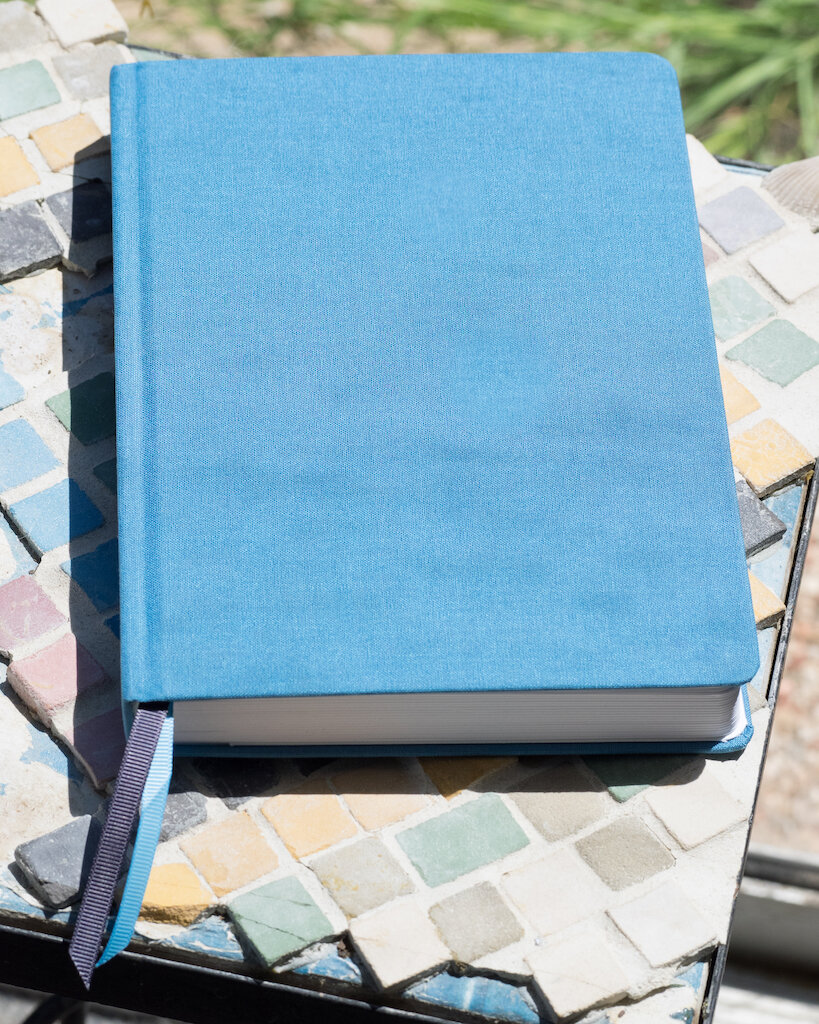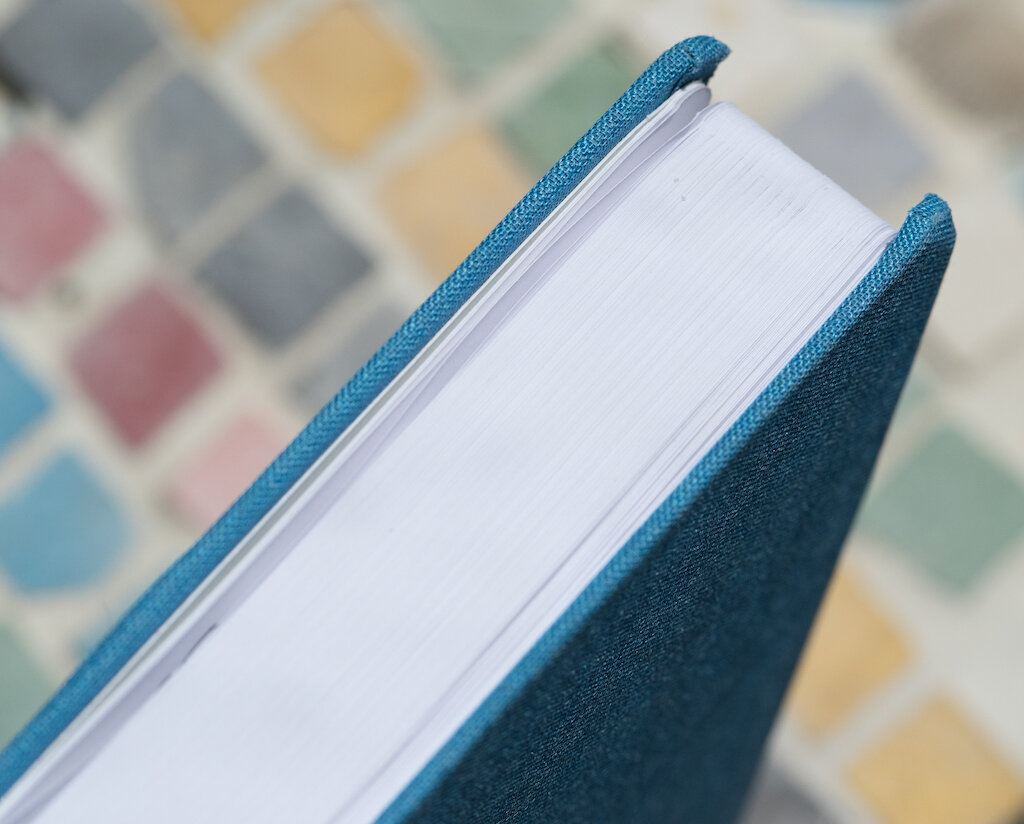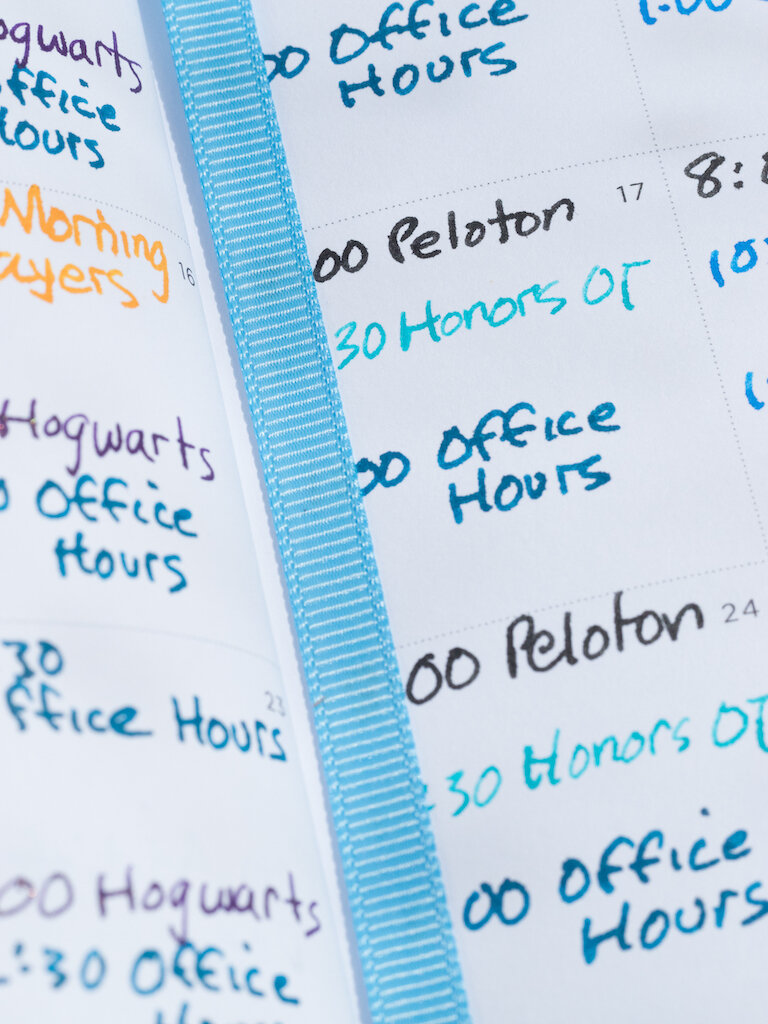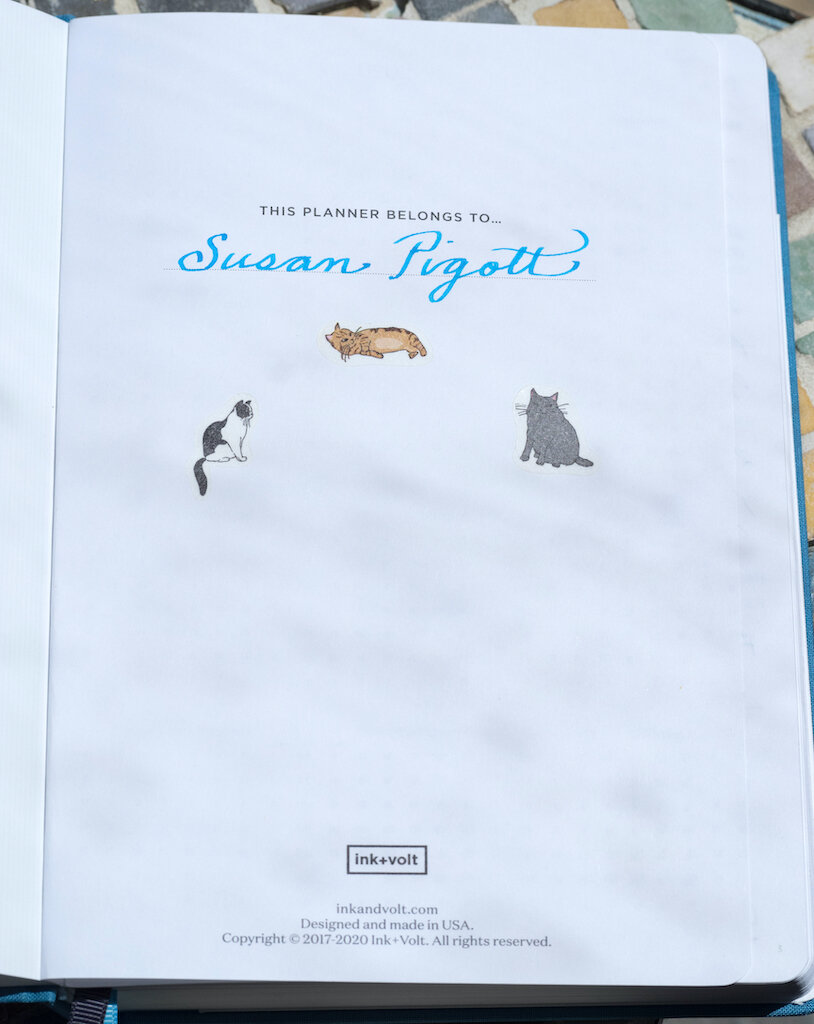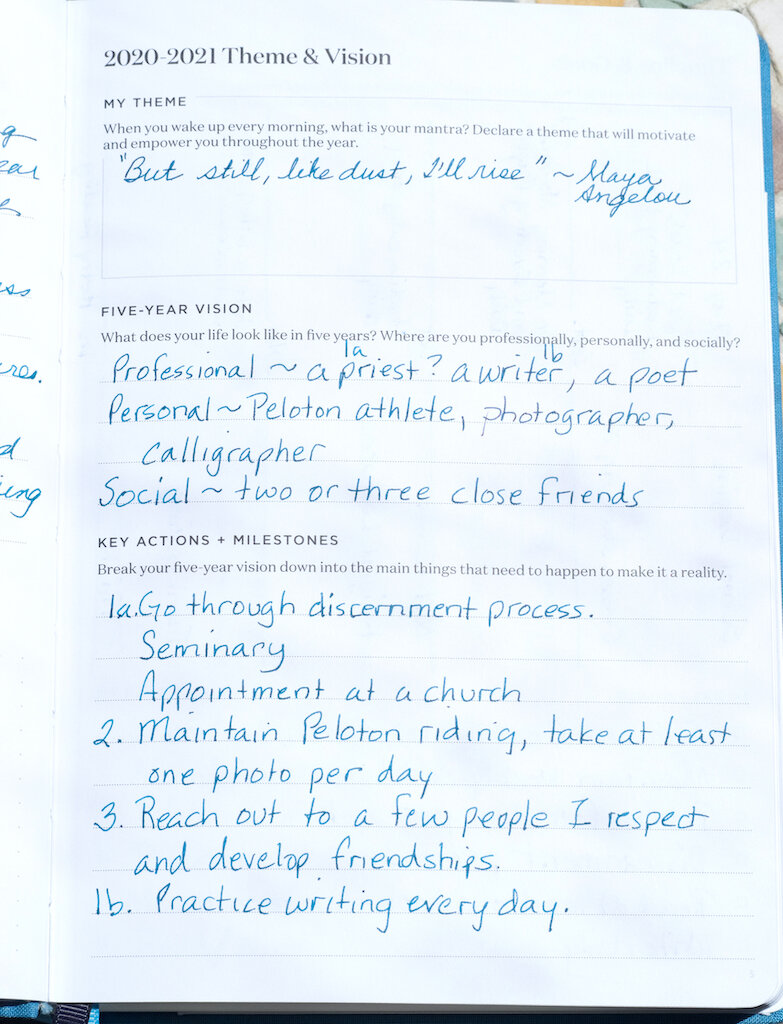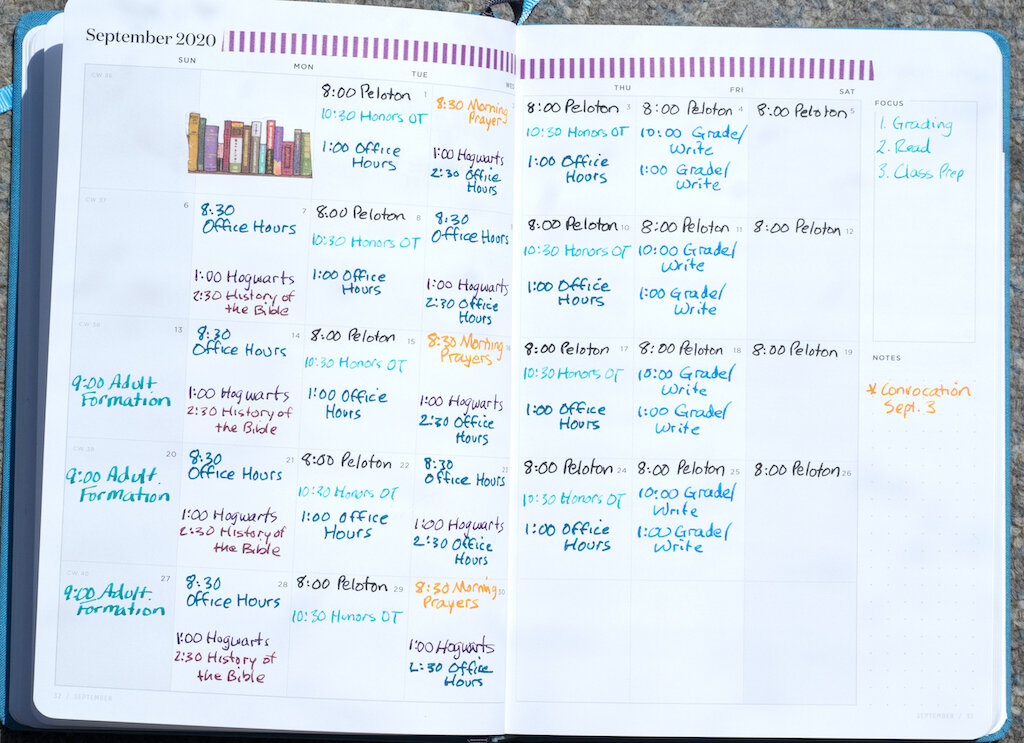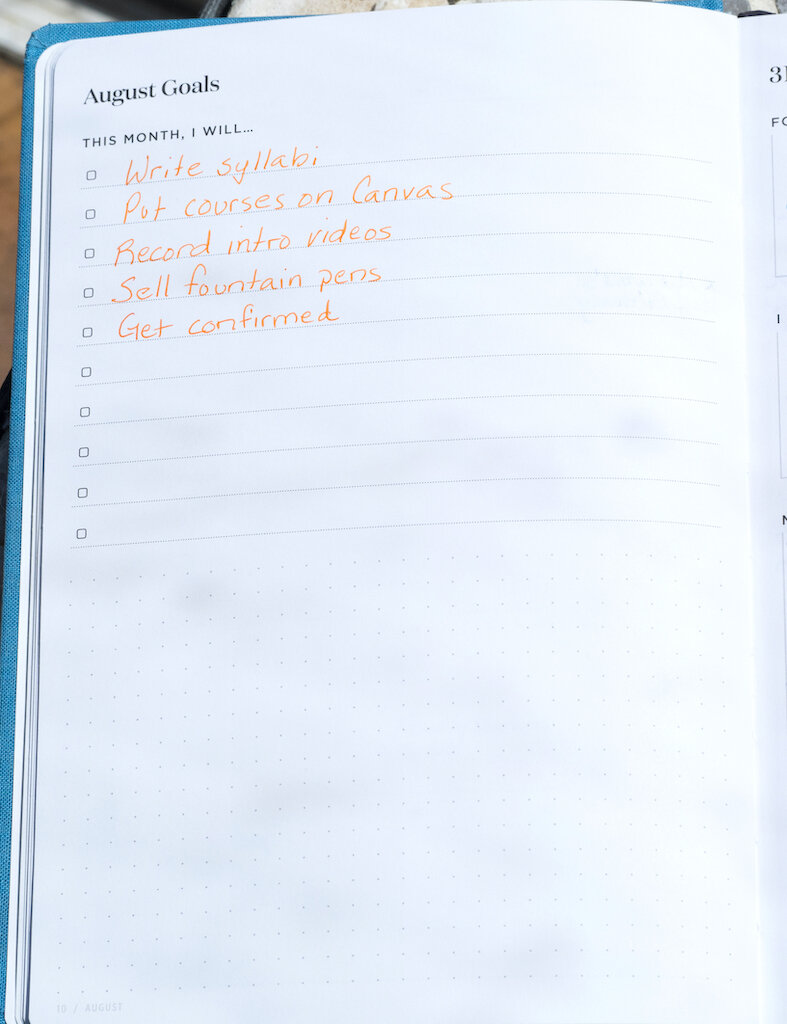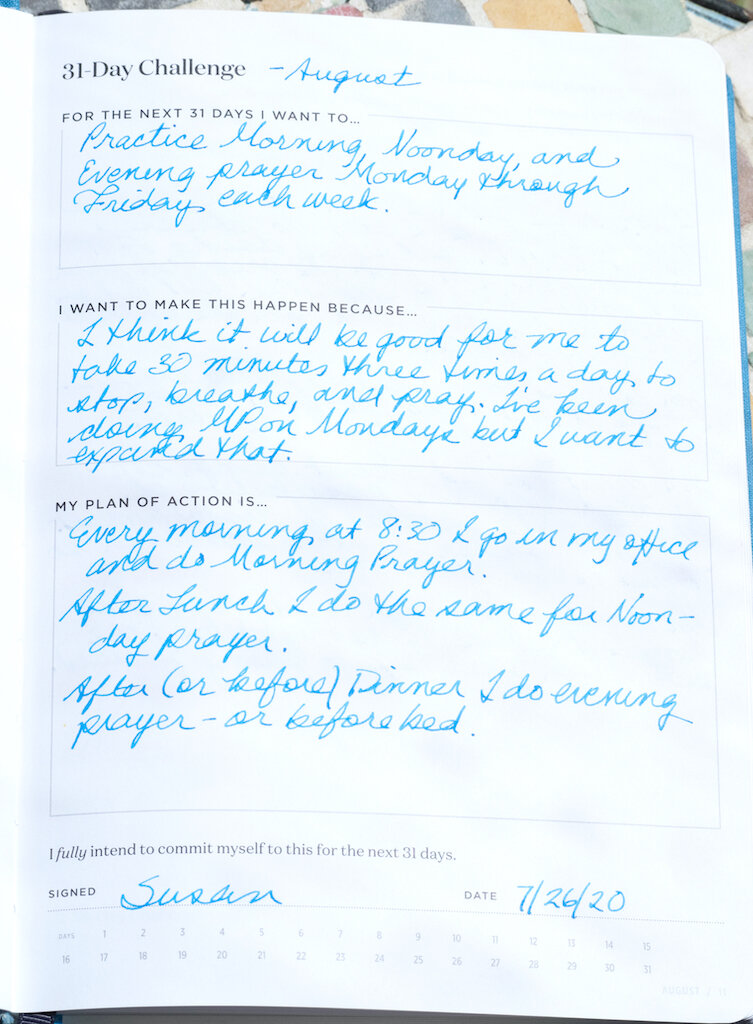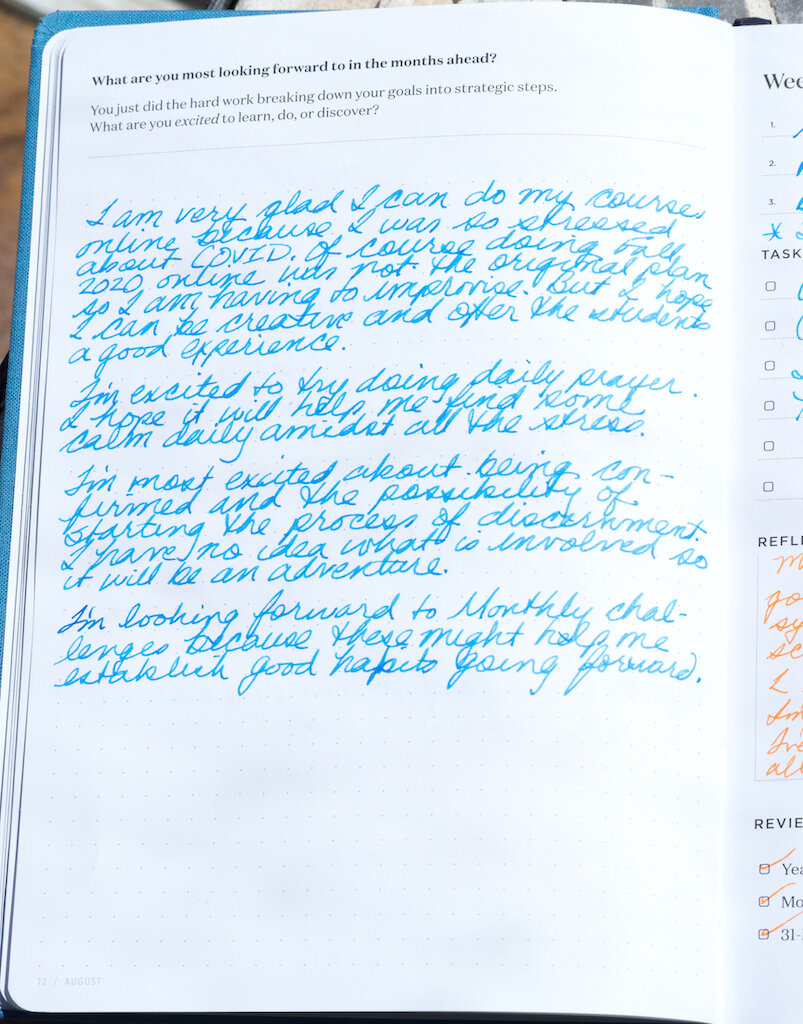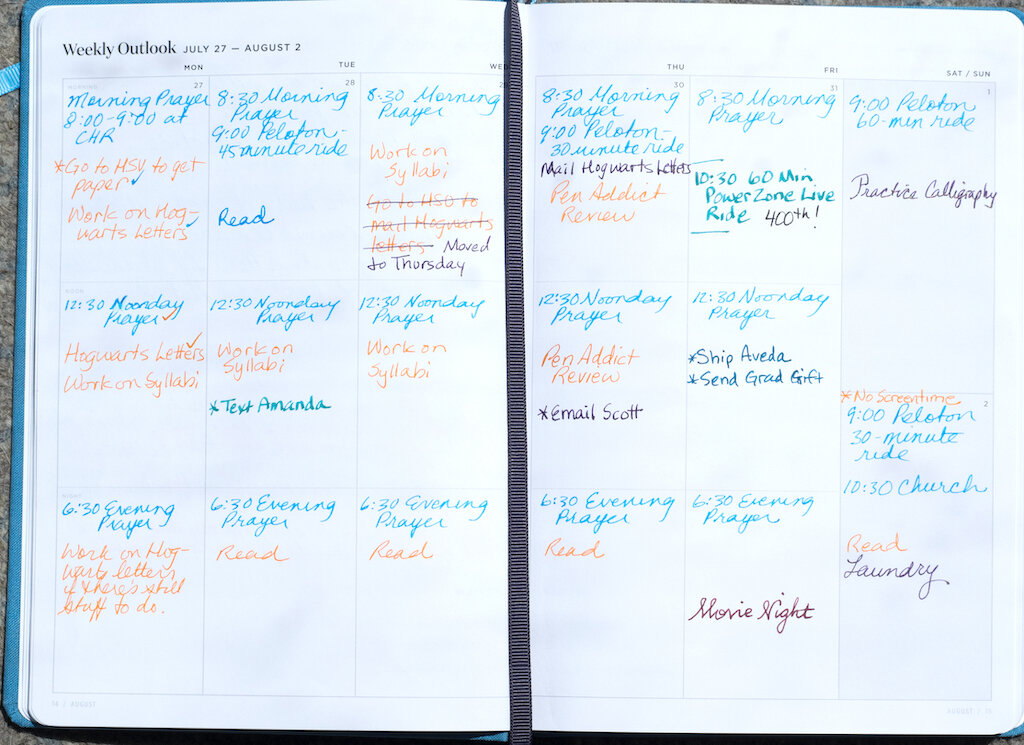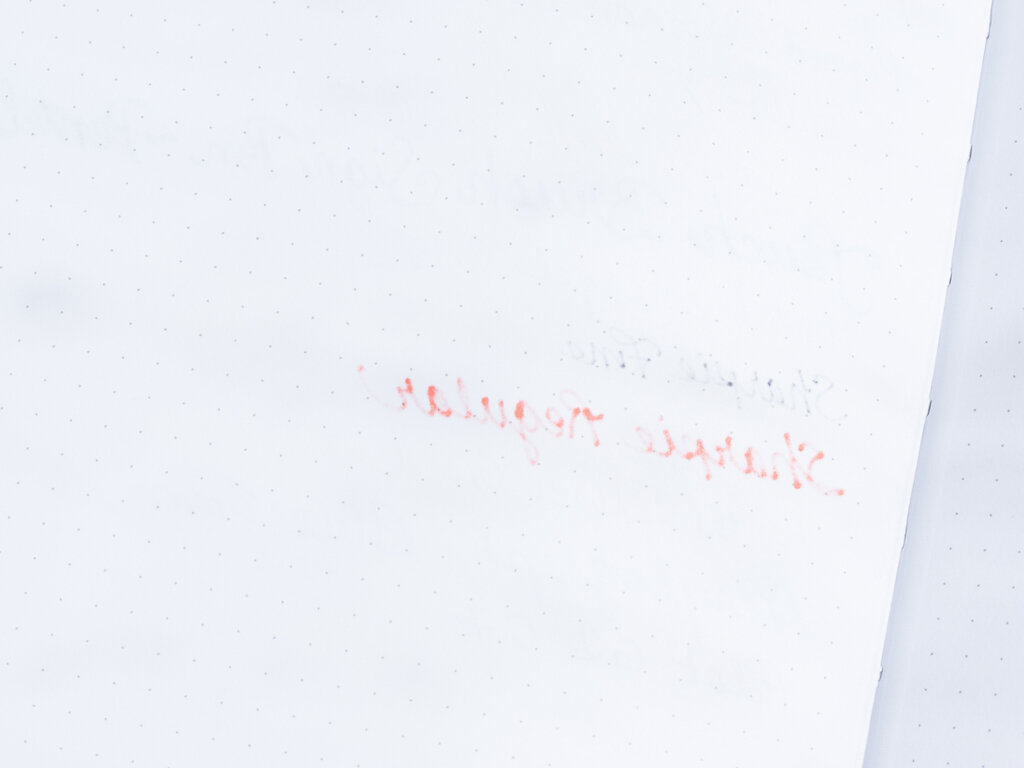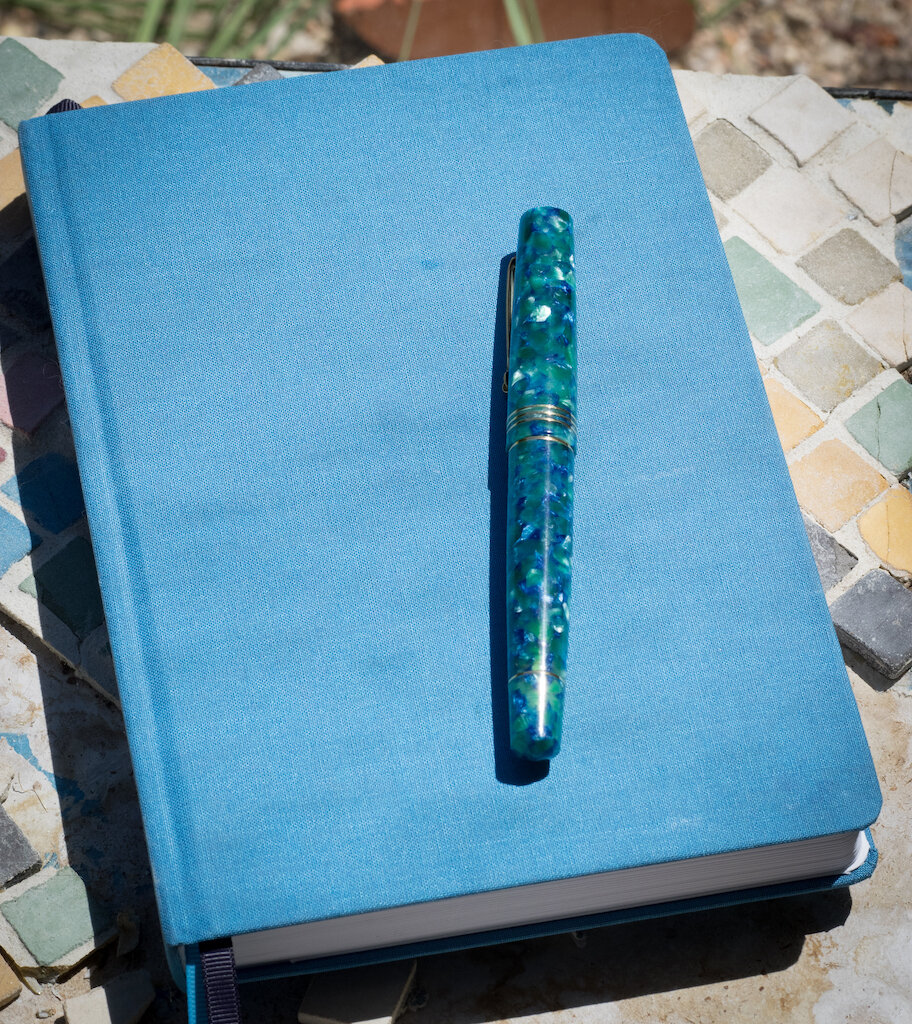(Susan M. Pigott is a fountain pen collector, pen and paperholic, photographer, and professor. You can find more from Susan on her blog Scribalishess.)
I left my office for Spring Break on March 6th and didn't return until last week because: COVID. I didn't realize that I wouldn't return after Spring Break, and I left my Hobonichi planner on my desk. Honestly, I left all plans behind in March. Those 2020 goals I set in January? Poof. Gone. Like many of you, I've spent my summer in a haze of uncertainty, not knowing how to set any goals much less have any.
But the fall is around the corner, and I needed a hard reset in order to start working on my courses. After Brad reviewed his Ink + Volt Executive Notebook, I headed to the Ink+Volt website and discovered their 2020-2021 academic planners. "Perfect!" I said. "This may be the thing that will help me reset my life." Plus, it's my last year as a professor, and an academic planner seemed like a little going away (cough . . . you've been fired . . . cough) present to myself.
The Ink+Volt Academic Planner is a hardcover, lay-flat notebook with 280 pages of 70 pound paper. It measures 6 x 8 1/2 inches and is a little over 1 inch thick. The corners are rounded and the cover material is textured but soft. The only branding is on the back cover, and it is subtle.
Two thick ribbons allow you to mark your place (I use them to mark the current month and week), and a back corner pocket can hold any extras.
There's a cover page where you can write your name (and add kitty stickers).
The next two pages provide complete 2020 and 2021 monthly calendars, which is helpful for reference.
Planning for the Year
One of the reasons I wanted to try the Ink+Volt Academic Planner is because of the guided planning it provides. As I said earlier, I needed a reset for 2020, and the first few pages of the planner offered that. Before I started filling them in, I printed the free Mid-Year Review provided in the "Guides" section on the Ink+Volt website. This review helped me to assess where I was as of July 2020.
Then I filled out the pages in the Academic Planner, starting with "Bringing Your Year Into Focus."
The next page asked me to declare a theme for the year that would both inspire and empower me. I chose a line from Maya Angelou's famous poem, "Still I Rise" as my theme: "But still, like dust, I'll rise." As part of my reflection, I had to come up with a Five-Year Vision and key actions and milestones to help me achieve that vision.
A two-page spread offers space for a timeline with goals for the first and second halves of the year. My goals are pretty much the same for both halves, though in the spring one unhappy goal is moving out of my office where I've spent the past 28 years.
Planner Features
The planner is divided into months and weeks. There are no daily pages. Each month appears as a two-page spread with plenty of space for writing down events. The right margin provides a focus box and space for notes.
Next is a page for the month's goals with checkboxes and space below for notes or additional goals.
Each month you choose a 31- (or 30-) day challenge. This offers you an opportunity to create a new habit or try something fresh for the month. In addition to stating what the challenge is, you explain why you want to do this particular challenge and offer a precise plan of action to make it happen. There's a place to sign your commitment (which felt a little silly to me, but okay) and a "Challenge Tracker" to circle or highlight all the days when you completed the challenge.
Prior to each week, you are given a unique question to consider. For this week, the question was, "What are you most looking forward to in the months ahead?" Questions from other weeks include "Are you holding on to things that no longer serve you? . . . What can you let go of this week?" "Hard work and focus can sometimes feel lonely. Is there time for human connection in your life?" "The smartest people are always learning. What is a lesson you can take away from a recent experience?"
I love these weekly questions. They offer an opportunity to consider things beyond goal planning. Contemplating a question you might not think of yourself prior to beginning each week is inspiring.
The next page asks you to write at least three goals for the week and the tasks you'll need to do in order to complete those goals. There's a box where you can reflect and celebrate what you accomplished the previous week. A checklist at the bottom of the page reminds you to do a weekly review of your goals.
Another two page spread provides plenty of space to plan your week. Each weekday is divided into three boxes: Morning, Noon, and Night. If you want to subdivide the boxes into hours you can, or you can simply write goals or tasks for each time period. I thought I would miss not having a "Daily" page, but the weekly spread provides enough room for me to write the things I would ordinarily put on a daily page. The greatest benefit to this approach is I can see the entire week at a glance. This is so helpful for my ADHD brain that forgets anything out of sight.
There's a section at the end of the planner for documenting your achievements for the year and reflecting on the events.
The 70 pound paper in the Ink+Volt Academic Planner is smooth and thick with dot-grid format for notes. From the feel of the paper between my fingers, I expected it to perform well with fountain pens and ink. It does and it doesn't. In my fountain pen test, the paper handled finer nibs and drier inks without much difficulty and with little show or bleed-through. However, wider nibs and wetter inks created some bleed-through.
I also tested various pens (gel, rollerball, felt tip). The paper handled these easily, but both the Sharpie pens bled through.
I decided to do a swab test even though this planner wasn't designed for wet swabs of ink. I know some folks like to use monthly spreads to do ink challenges. The swabs look great on this paper with rich color, sheen, and shading, but there's significant bleed-through.
One of the most disappointing aspects of the paper is that many of the fountain pen inks feathered, even with fine and extra fine nibs. The feathering isn't all that noticeable to the naked eye, but I'm surprised the paper isn't as fountain-pen friendly as I expected it to be.
I'm looking forward to using the Ink+Volt Academic Planner for my last year as a professor. I've already benefitted from doing the Mid-Year Review and yearly planning. The weekly reflection questions will give me something different to consider as I prepare for each week. I think the Weekly Outlook format be excellent for planning. Having the entire week before my eyes will help me keep on top of things.
In addition to the planner, the Ink+Volt website offers numerous free resources, including printable worksheets and blog posts covering all sorts of helpful topics. I've read several of the posts and plan to use the printables.
If you need a reset as August arrives, I highly recommend the Ink+Volt Academic Planner with the caveat that the paper isn't completely fountain-pen friendly. You can purchase one from Ink+Volt for $42.75, but they are running low on stock and color choice is limited. Act quickly if you want one. If an academic calendar format isn't for you, Ink+Volt has their 2021 planners ready to go. Prices vary depending on the series you choose. You don't have to purchase a planner to start using the Ink+Volt website with all the wonderful resources provided. It's a great way to sample the Ink+Volt methodology before you commit to a planner.
(Ink+Volt provided this Academic Planner free of charge to Pen Addict for review.)
Enjoy reading The Pen Addict? Then consider becoming a member to receive additional weekly content, giveaways, and discounts in The Pen Addict shop. Plus, you support me and the site directly, for which I am very grateful.
Membership starts at just $5/month, with a discounted annual option available. To find out more about membership click here and join us!

